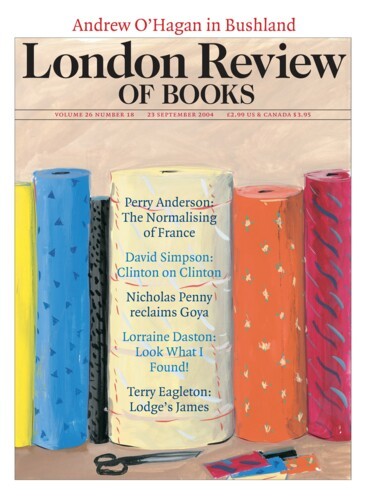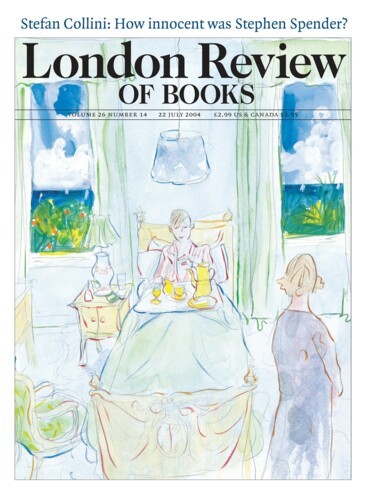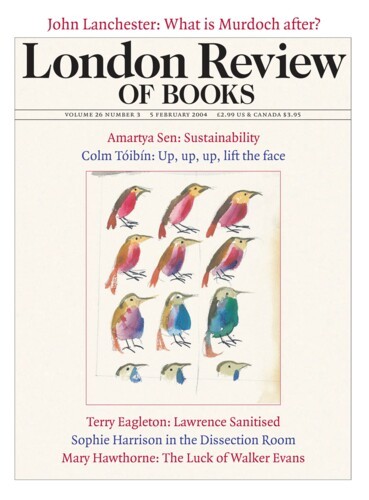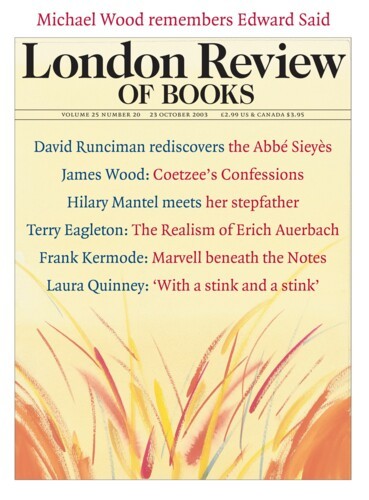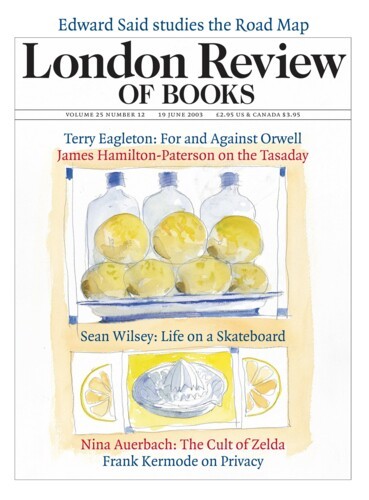Living as Little as Possible: Lodge’s James
Terry Eagleton, 23 September 2004
Since the Modernist revolution, writing has been seen as an intensely private activity, a view which might have come as something of a surprise to Chaucer or Pope. For liberals such as Henry James and David Lodge, it represents a venture into individual consciousness of unique worth – so valuable, in fact, that in this new novel Lodge suspects it may be the summum bonum....
